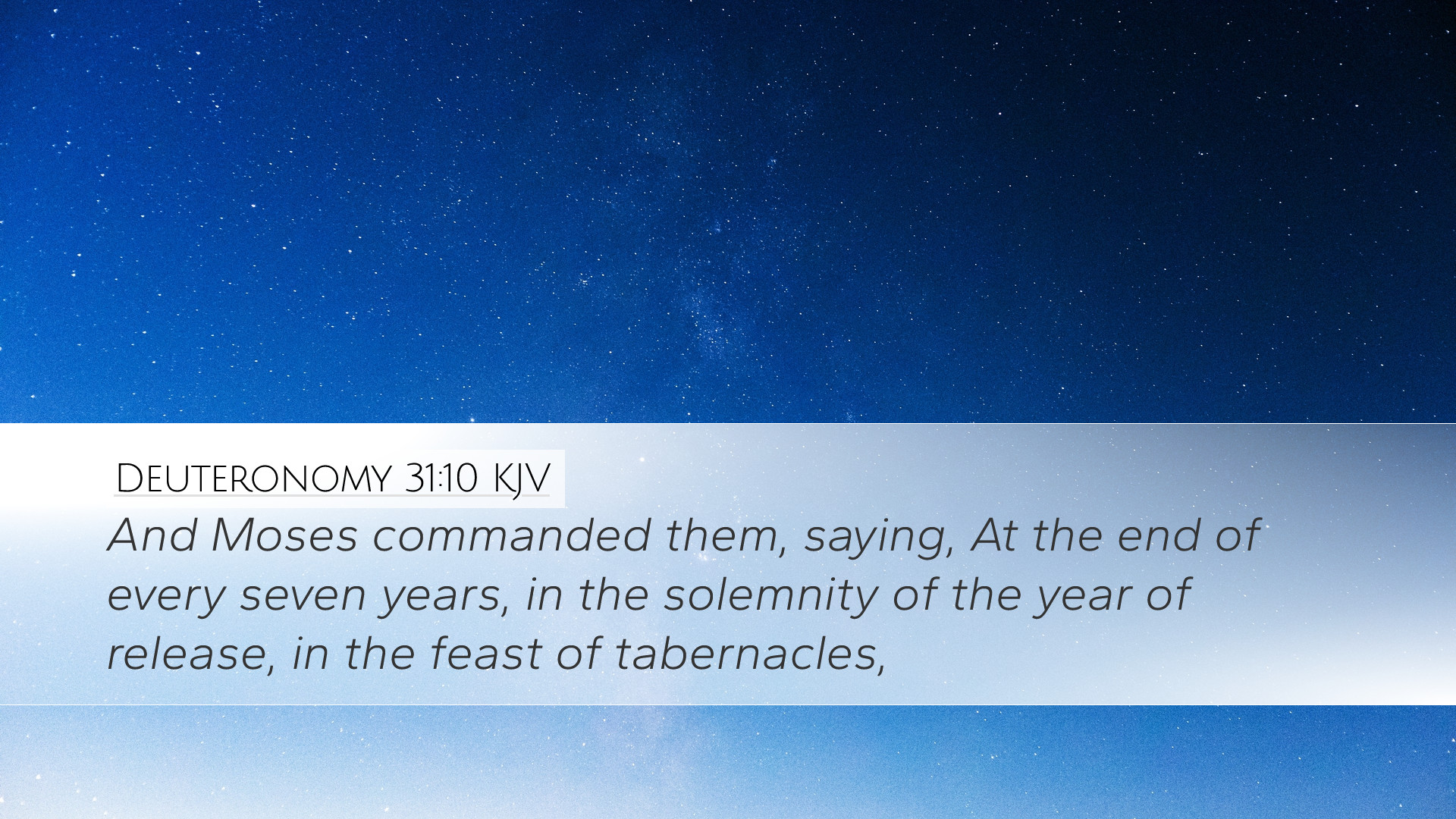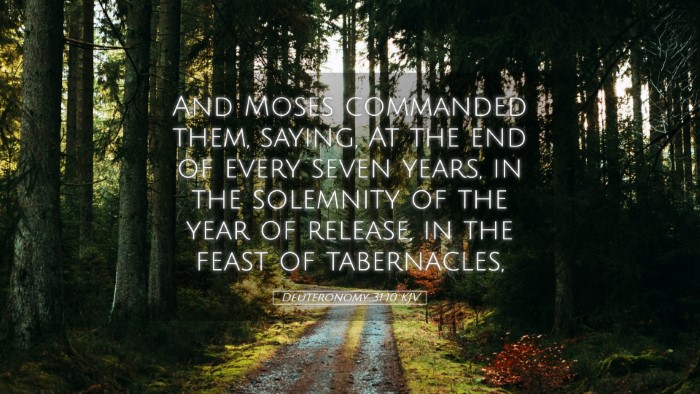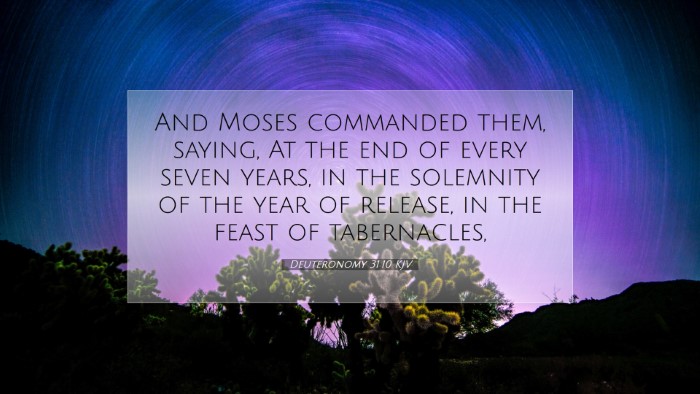Commentary on Deuteronomy 31:10
Bible Verse: "And Moses commanded them, saying, At the end of every seven years, in the solemnity of the year of release, in the feast of tabernacles," (Deuteronomy 31:10, KJV)
Introduction
This verse signifies a pivotal moment in the life of Israel as they prepare to enter the Promised Land under Joshua's leadership. The command of Moses serves both as a reminder of God’s covenant and as a precursor to the institution of the year of release and the reading of the law. This commentary synthesizes insights from Matthew Henry, Albert Barnes, and Adam Clarke to explore the significance of these instructions and the theological implications for the people of Israel and for contemporary readers.
The Context of the Command
Moses, the great leader and lawgiver, approaches the conclusion of his earthly ministry. At this juncture, he issues significant commands about the observance of the law and religious festivals. Matthew Henry notes that this preparation for the year of release highlights God's mercy and provision, reminding Israel that not only are they to be a people governed by law, but also an expression of grace and community.
The Year of Release
The "year of release" is primarily discussed in Deuteronomy 15, where it is mandated that debts should be forgiven and slaves released every seventh year. This period signifies a fresh start, reflecting God's desire for justice and mercy in social structures. Adam Clarke emphasizes that this practice was designed to prevent long-term oppression and promote a loving and forgiving community. The emphasis is on divine justice intertwined with human compassion.
The Importance of the Feast of Tabernacles
The Feast of Tabernacles, also known as Sukkot, is a celebration of God's provision during the Israelites' wandering in the desert. Albert Barnes highlights its significance as a time for grateful remembrance and communal gathering. It demonstrates to the people that their sustenance and safety come solely from God. This feast, as a backdrop to the year of release, signifies a restorative period in Israel's cycle, underscoring themes of reliance on God and rejoicing in His faithfulness.
The Public Reading of the Law
As Moses instructs the Israelites to publicly read the law during this festival, it establishes a routine of continual remembrance and education, ensuring that generations to come understand their covenant with God. Matthew Henry points out that this reading serves multiple purposes:
- Reinforcement of Identity: The reading solidifies the people's identity as God's chosen nation.
- Accountability: It holds the people accountable to the commandments that they have been given.
- Spiritual Renewal: Reinforces the spiritual renewal necessary for maintaining a right relationship with God.
Implications for Leadership and Obedience
In this context, Moses is not only a leader who instructs but also a servant of God who exemplifies obedience. Adam Clarke remarks on the reliance of the faithful leader on God's directives and the necessity of passing on teachings to the next generation. The charge Moses gives emphasizes the importance of mentorship and the communal responsibility to uphold God's words.
Conclusion
Deuteronomy 31:10 encapsulates essential themes regarding societal structure, celebration, and divine grace. In proposing observance of the year of release during the Feast of Tabernacles, Moses invites the Israelites into a lifestyle of mercy and gratitude towards God. As pastors, students, theologians, and scholars reflect on this passage, they are reminded of the continuous cycle of grace and the necessity of grounding communal life in the truth of God’s Word.
Reflection and Application
For Pastors: Consider how your congregations may practice forgiveness and restoration as a reflection of God's mercy. Organize events that encourage remembrance of God’s faithfulness.
For Students: Reflect on the significance of studying scripture and how it informs your understanding of community and justice in today’s context.
For Theologians: Explore the implications of the year of release and the Festival of Tabernacles for contemporary Christian thought about law, grace, and community.
For Scholars: Analyze the socio-political context of Deuteronomy and its impact on the formation of Israel’s national identity and its theological underpinnings.


